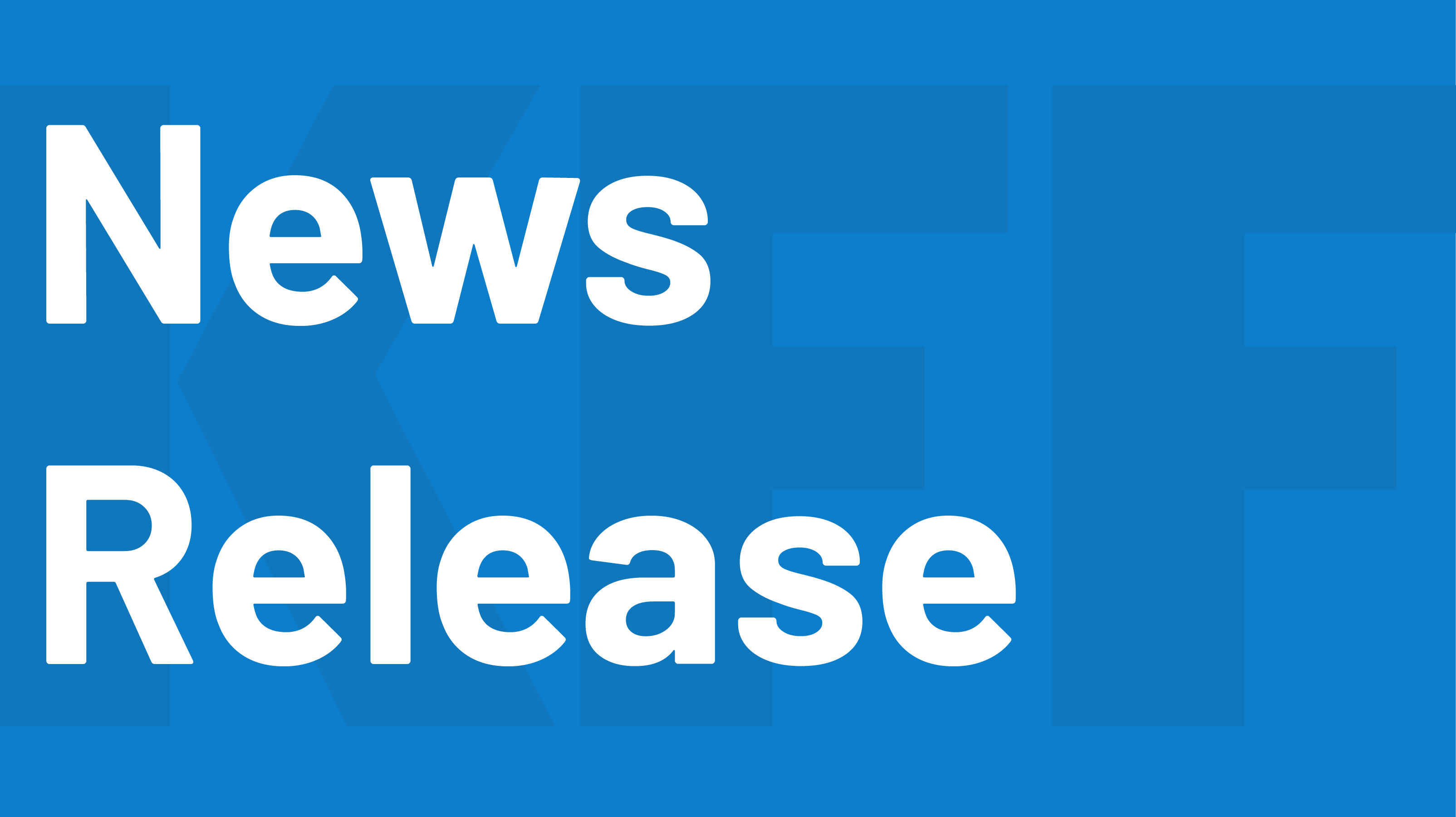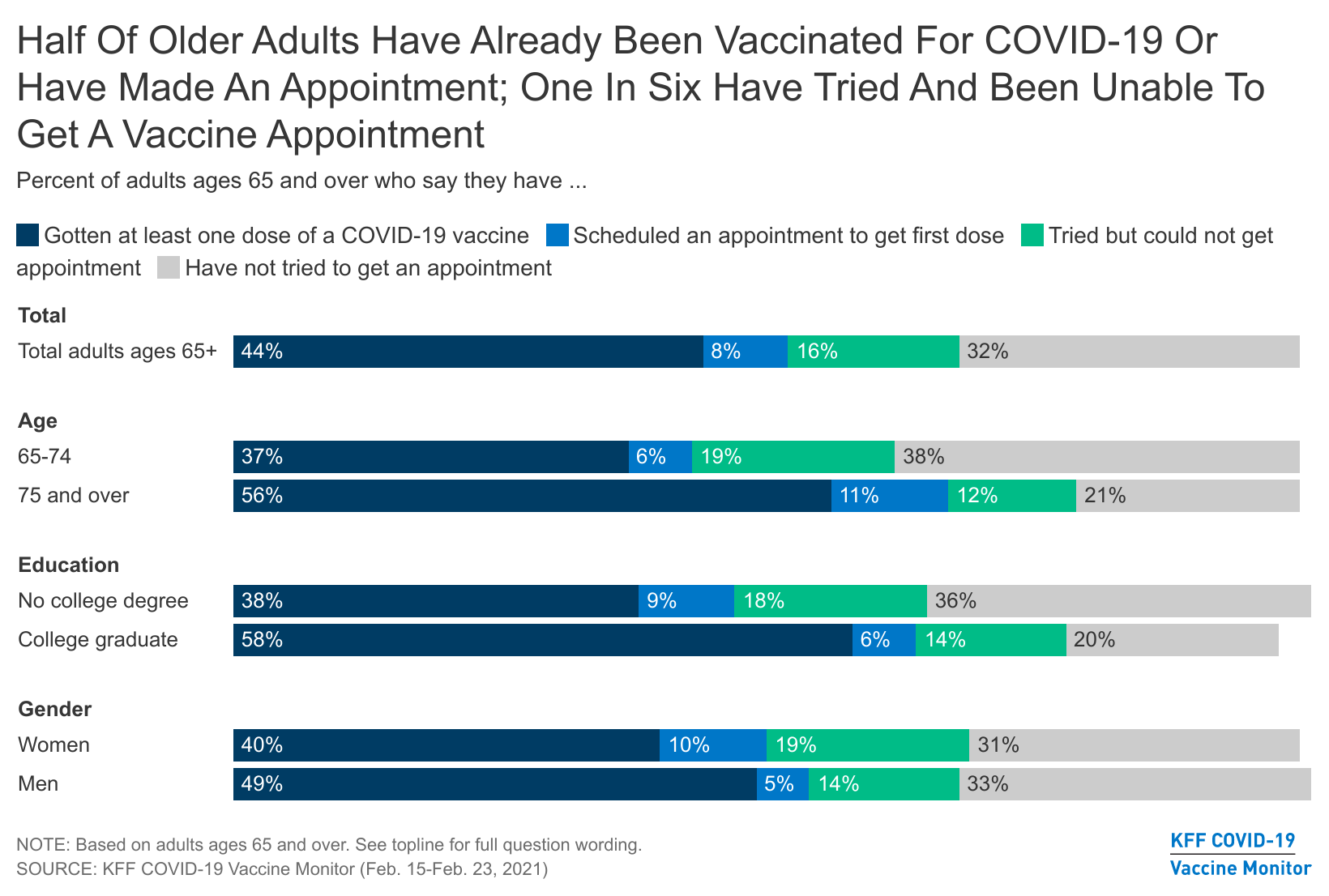Many Relied on Another Person’s Help to Try to Get a Vaccine Appointment
As many states and local authorities ramp up their COVID-19 vaccination efforts, the latest KFF COVID-19 Vaccine Monitor report provides the first in-depth look at Americans’ experiences trying to gather relevant information and sign up to get vaccinated.
The report shows that many older Americans have been able to navigate the system successfully to get vaccinated, though a significant minority are frustrated and have been unable to sign up for a shot.
Among those at least 65 years old – a group eligible to get vaccinated in nearly all states – about half have either already received at least one dose of a COVID-19 vaccine (44%) or have an appointment to get vaccinated (8%). An additional 16% say they tried to make an appointment but could not.
Most of the older adults who got vaccinated or attempted to get an appointment say the process was easy to navigate, but 43% say it was difficult. This could be due to difficulties navigating the sign-up system or to the demand for vaccine exceeding supply in their area.
Older adults with college degrees, who may be better able to navigate the sign-up systems, are more likely than those who have not graduated from college to say they have received or scheduled their first dose (65% compared to 46%).
Available through the Monitor’s online dashboard, the new report also examines other aspects of people’s experiences trying to get a COVID-19 vaccine and accessing relevant information. Key takeaways include:
- Among adults of any age who have gotten vaccinated, 39% say someone else helped them get the appointment. On the flip side, a third (33%) of all adults say they helped someone else find information about when and where to get vaccinated, and nearly a quarter (23%) say they helped someone make a vaccine appointment.
- Although anecdotes abound about children and grandchildren helping older relatives get appointments, those at least 65 years old are more likely than younger adults to report assisting someone else (43% helped someone else find information and 32% helped someone get a vaccine appointment).
- Among those who have not yet gotten the vaccine, nearly two thirds (63%) say they don’t have enough information about when they’ll be able to get the vaccine, and nearly half (45%) say they don’t have enough information about where to go. In addition, more than half (54%) say they don’t know enough about potential side effects.
- Three-quarters of adults who are open to getting vaccinated say they would be very likely to get it at their doctor’s office, if available. Most also say they’d be very likely to get it at a local pharmacy (61%) or a hospital (55%), and about half say so about a community health clinic (49%) or their workplace (48%). When asked to pick their most preferred place, 38% chose their doctor’s office, followed by a local pharmacy (15%), hospital (9%), or their workplace (8%).
Designed and analyzed by public opinion researchers at KFF, the KFF Vaccine Monitor survey was conducted from February 15-23 among a nationally representative random digit dial telephone sample of 1,874 adults, including oversamples of adults who are Black (507) or Hispanic (506). Interviews were conducted in English and Spanish by landline (339) and cell phone (1,535). The margin of sampling error is plus or minus 3 percentage points for the full sample. For results based on subgroups, the margin of sampling error may be higher.
The KFF COVID-19 Vaccine Monitor is an ongoing research project tracking the public’s attitudes and experiences with COVID-19 vaccinations. Using a combination of surveys and qualitative research, this project tracks the dynamic nature of public opinion as vaccine development and distribution unfold, including vaccine confidence and acceptance, information needs, trusted messengers and messages, as well as the public’s experiences with vaccination.


